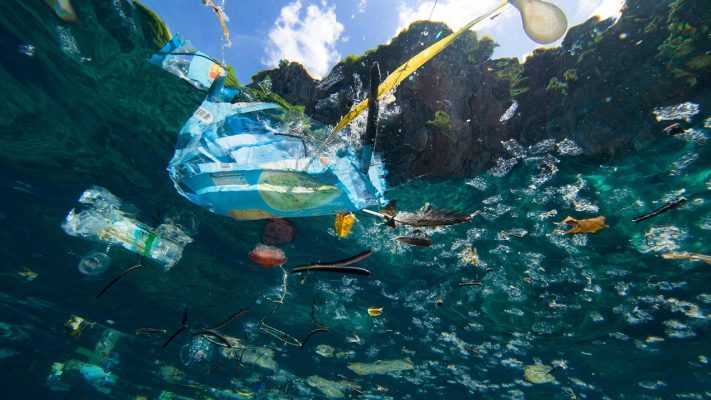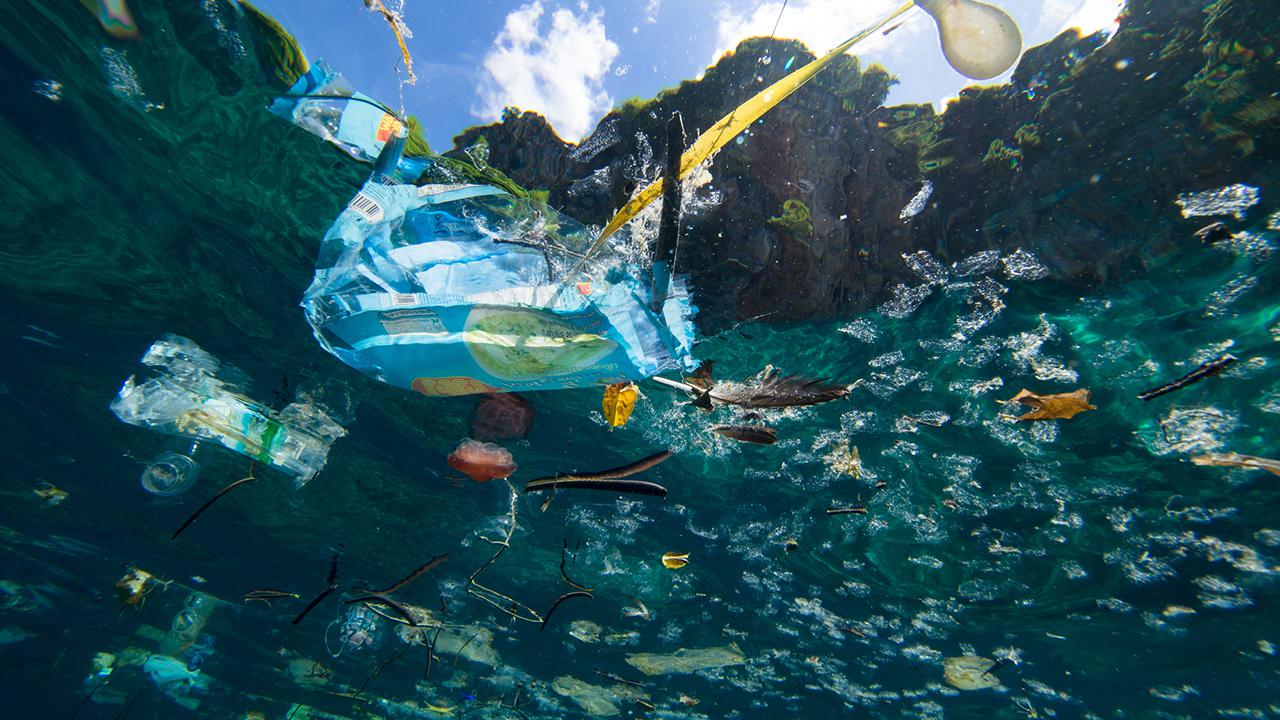Waste management services are struggling to cope with huge amounts of plastic waste. To stem this tide, WWF-Singapore is collaborating with multiple stakeholders to reduce waste and move towards a circular economy. Consumers can make informed and sustainable choices about their plastic output by following our work.

In Singapore, About 900 Million KG of plastic waste is discarded every year
Plastic breaks down into smaller plastics known as microplastics. Plastic litter and microplastics are found in all parts of our planet’s environment, in the food we eat, the air we breathe and the water we drink.
Since plastics are made from petrochemicals derived from fossil fuels, increasing plastic production for a single-use linear economy is also contributing to the climate crisis.
It’s time to turn the tide. WWF’s vision is to eliminate the leakage of plastic into the environment by 2030.
How can you make a difference?
Saving resources: one package at a time
Singaporeans love shopping online. Close to 200,000 parcels are delivered daily in Singapore. Each parcel you order online uses new plastic resources for the manufacturing of single-use packaging. Can you imagine the amount of waste we are generating through this?
If we all switch to reusable packaging every time we use and return a piece of reusable packaging, we can avoid using new resources. This means that we could save up to 2kg of CO2 for each kilogram of virgin material – the equivalent of how much CO2 one tree would absorb in a month!
WWF-Singapore’s Plastic ACTion (PACT) initiative
This year, we are partnering with e-commerce retailers, reusable packaging manufacturers, and logistics companies to make circularity seamless for every online shopper.
When you shop online with any of the participating retailers, your parcel will be delivered to you in reusable packaging that you can return easily, simply by dropping them off at your nearest postal box.
Click here to find out which companies are participating in this pilot.

Do you really know your plastics?
On average people could be ingesting around 5 grams of plastic every week, which is the equivalent weight of a credit card. Our study suggests people could be consuming on average over 100,000 microplastics every year. That’s approximately 21 grams a month, just over 250 grams a year.
This consumption of microplastics – through the food and drinks we consume – is happening because plastics break down into tiny bits called microplastics, small enough to enter our food chain. Despite their continued entry into our food systems, we have yet to determine the extent of negative impact it has on human health.
However, we have seen pictures of how microplastics have a harmful effect on biodiversity, especially with animals confusing it for food, leading to fatalities. Additionally, pollution like single use plastic bags can cause marine life to suffer from entanglement and face further losses.
What can you do as a consumer? Scroll down to find out more.
Biodegradable, compostable and plant-based: the solution to plastic pollution?
If you’re shopping around for eco-friendly plastic alternatives, you may have seen two terms: biodegradable and/or compostable. Biodegradable and compostable plastics are often viewed as alternative solutions to regular plastic but they are not necessarily better for the environment.
Biodegradable plastics (aka bioplastics) will naturally degrade over time into substances found in nature.
Compostable plastics need certain conditions like specific temperatures and humidity levels and usually require industrial composting facilities to break down (which Singapore does not have).
Another term is plant-based which conjures an image of natural, eco-friendly materials. If you buy them because you think they’re biodegradable, have a second look. Plant based plastics are made by fermenting plants to form ethanol — a key ingredient to produce plastics such as PET and HDPE (commonly used plastic items).
Not all plant-based plastics are biodegradable despite being made from plants. If the plastic is called bio-PET or plant-based HDPE, it is not biodegradable.
However, switching to these materials does not solve excessive or unnecessary use of plastic packaging. WWF does not indiscriminately support all bio-based plastics, as the environmental advantages of these materials differ depending on the specific feedstock used and the subsequent product lifecycle. Biodegradable, compostable and plant-based plastics still require a proper waste collection and disposal system.
Do you wish to learn more about the impact of various materials? Do you find it difficult to choose packaging materials that are more environmentally friendly than others? Click here to try out the free Alternative Materials Tool for yourself.
No Plastic in Nature by 2030
After more than 4 years of WWF campaigning for a global plastics treaty, garnering support from more than 2.2 million people and over 140 leading businesses, we saw a major victory in Nairobi on March 2nd as United Nations member states agreed to formally start negotiations on a legally-binding global treaty, which paves the way to solving plastic pollution through an implementable treaty by 2024.
In Singapore, we work in partnership with policymakers and businesses towards a circular economy for plastics. To stem the tide, we are advocating for systemic solutions and supporting lifestyle changes to use less plastic.
- Reduce unnecessary use and production of plastics.
- Shift to more sustainable options such as reusables or recycled plastics.
- Double the recycling and collection of plastics.
Individuals, businesses and the government need to come together to make this possible.

